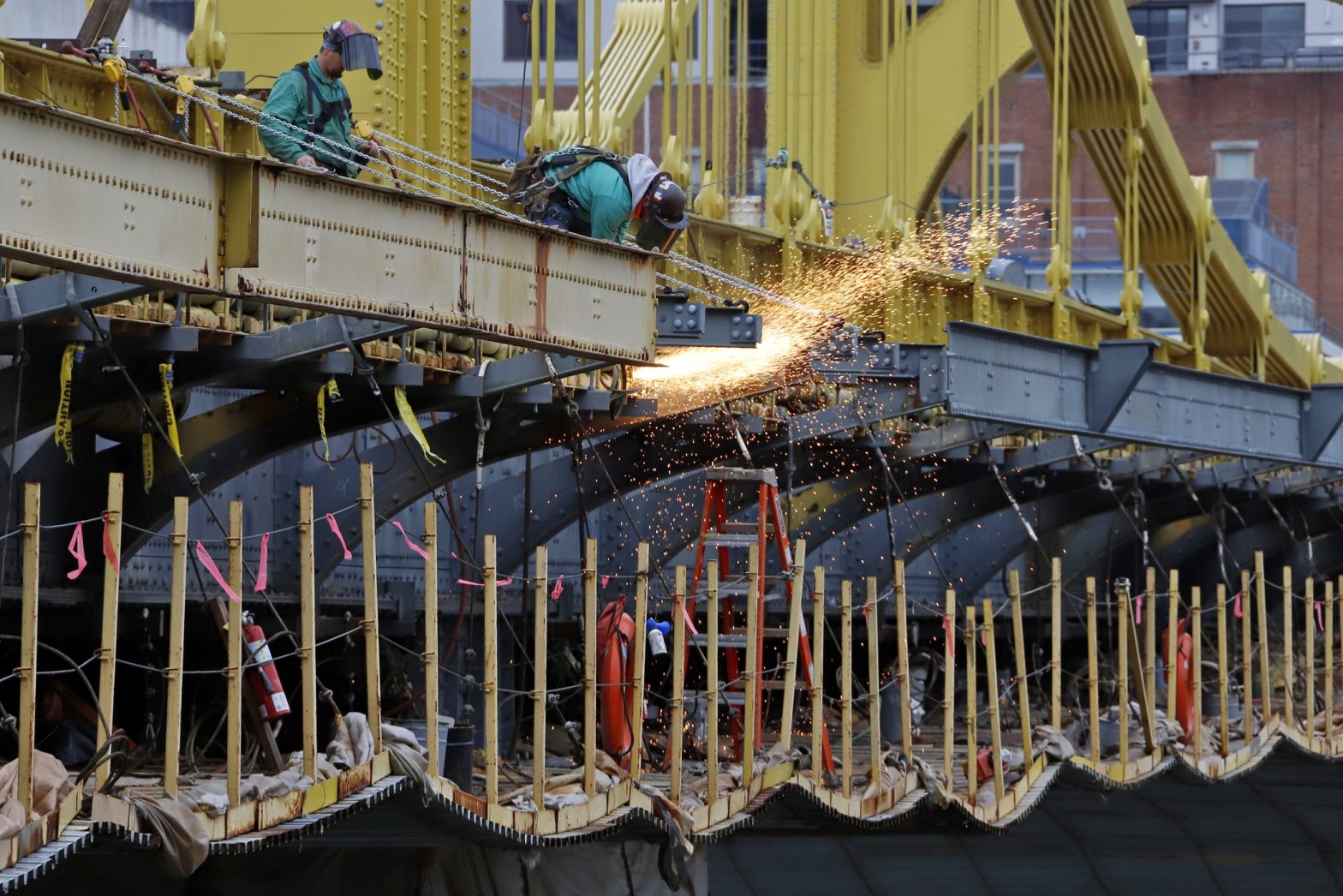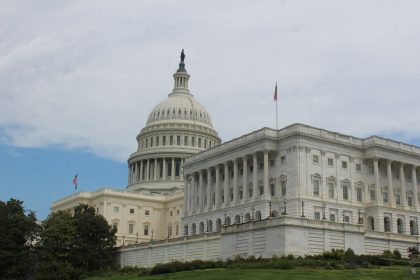Experts Discuss Passing and Paying for Upcoming Infrastructure Bill

WASHINGTON — Democrats want to pass a massive multi-trillion dollar infrastructure bill, but there will be problems on the Republican side with the scope and cost of Democratic priorities. In the end, a bill without bipartisan support could be passed through the Senate’s budget reconciliation process, but pushing it through this way won’t come without its own cost.
“Congress and the administration are at a fork in the road,” said Bill Shuster, former U.S. Representative who served as chairman of the House Infrastructure Committee, speaking at a live-streamed discussion of the nonprofit Bipartisan Policy Center.
Infrastructure, which includes transportation systems, communication networks, sewage, water, and electric systems, has been designated as a priority on both sides of the political aisle, especially as the pandemic highlighted areas of need.
While Shuster agreed that infrastructure was a pressing priority, and a bipartisan bill would be ideal, he admitted there were differing priorities and ideas on how to fund and finance the country’s most pressing infrastructure needs, and that those concerns would affect how any Infrastructure bill could be passed.
“The House can pass whatever it wants, but the Senate is a different story,” Shuster explained. The traditional way to pass a bill through the Senate is through regular order. Regular order refers to the application of committee and subcommittee processes, including public hearing opportunities and the holding of multiple votes.
But often, especially over the last few years, regular order has been bypassed with bills reaching the chamber floor attached to other bills or reconciliation measures — or simply because the Senate majority leader uses their unilateral authority to allow bills to bypass committees.
“Handling passage in a bipartisan way — and under regular order — will surely shrink the size of the package monetarily, but may allow it to speak to broader bipartisan issues,” Shuster said, offering that starting points for bipartisan negotiation could center around broadband, improving the electric grid, and some other environmental concerns. Handling it under budget reconciliation, on the other hand, may allow for a larger bill in terms of funding, but “limits them significantly on the policies… they can put in place.”
“There’s support and common ground, but if they want a $2 trillion bill, well… they’ll come up with the money — deficit spending most likely — but they won’t get [all] the policy changes,” he said.
“My sense is that if the administration continues to talk about a transformational bill, then I think we’ll try to go bigger, but it would be terrific to have some… elements be bipartisan in nature,” said Jane Garvey, former government transportation and public works official, now North America chairman for Meridiam.
“I’m optimistic that there’s enough common ground where a bill can be fashioned… I think in some ways the pandemic has given us an opportunity to come together on this,” she said.
Garvey suggested that deciding which form an infrastructure bill will take — whether through regular order or budget reconciliation — may depend on the revenue needed to pay for the bill’s actions.
Paying for the nation’s infrastructure needs is going to take multiple strategies, she said, though “anytime it could be done through incentives… that would make a difference.”
“We know that we need a robust Federal program, but there are a number of financing strategies that can be brought to the table,” she said, including public-private partnerships to deliver projects to the party best able to manage them.
Risk-sharing financial and operating partnerships have increased the acceleration of delivery of infrastructure projects and helped to maintain existing infrastructure at a higher standard. Through the use of public/private infrastructure partnerships, like green bonds financing utility and energy plants in California and risk-sharing partnership projects in Miami and at LaGuardia Airport, Garvey said there is more opportunity to reduce the size of the infrastructure bill at the federal level and opt for some bipartisan negotiation.
But while there will always be a focus on new projects and new priorities, transportation, including maintenance of the nation’s existing transportation systems, is certainly the nation’s most capital intensive and high-cost infrastructure investment. Much of the country’s transportation infrastructure is maintained with a federal fuel tax, first created in the early 1930s at 1 cent per gallon and currently sitting at 18.4 cents per gallon.
Shuster believes that a change in this fuel tax to a vehicle-miles-traveled tax, along with a one-time increase in government tax to make the transition, would not only be more fair but would assist in transportation planning. He suggested a change to this type of tax could increase funding by capturing more users, including electric and hybrid cars, as well as achieving revenue from non-motor users, like taxing bike tires.
“If you use the system, you pay for the system,” Shuster said.
Since 2018, the Eastern Transportation Coalition has done a series of vehicle pilots, including multi-state pilots, as a demonstration to help comprehend what a vehicle-miles-traveled tax could mean for personal wallets and households. Pilots like these are important as a transition away from the gas tax would be quite a big change.
“People get the concept of user-pay…. but are not convinced that we have a problem,” said Patricia Hendren, executive director of the Coalition.
“The fuel tax is a blunt way of assessing use of the system,” Hendren said while warning that while future solutions need to address both passenger vehicles and trucks, cargo trucks are likely to balk at a vehicle-miles-traveled approach, at least initially.
Even the separate pieces of infrastructure policy are a challenge to negotiate in today’s environment. At this point, what will eventually happen to pass and fund a larger infrastructure bill in Congress will depend on stakeholders, priorities, and pay fors.























